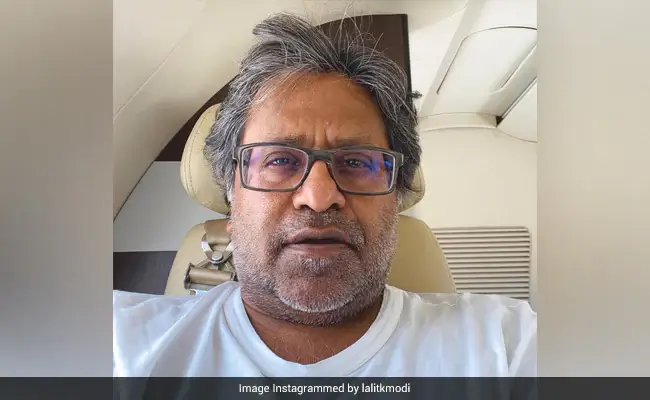Introduction
In the midst of the COVID-19 pandemic, the political landscape in India is experiencing major shifts. As the country grapples with a deadly second wave, leaders from across the political spectrum are coming together to push for unity in the opposition. One such leader is West Bengal Chief Minister Mamata Banerjee, who recently made a statement emphasizing the need for unity in the opposition. At the same time, Nitish Kumar, the Chief Minister of Bihar, has also made a pitch for opposition unity. In this article, we will take a closer look at Mamata Banerjee’s call for unity and Nitish Kumar’s pitch, and explore what it means for the opposition in India.
Mamata Banerjee Says “No Ego” As Nitish Kumar Pitches For Opposition Unity
Mamata Banerjee’s call for opposition unity comes at a time when the opposition is facing a significant challenge in the form of the ruling Bharatiya Janata Party (BJP). In her statement, Banerjee stressed the need for the opposition to set aside their differences and work together for the betterment of the country. She emphasized that there should be “no ego” when it comes to opposition unity and that leaders should work together to fight the BJP.
Banerjee’s call for unity has been met with a positive response from other opposition leaders. The Congress Party, which has been struggling to gain a foothold in Indian politics, has welcomed Banerjee’s statement and has reiterated its commitment to opposition unity. Other opposition leaders such as Sharad Pawar of the Nationalist Congress Party and Akhilesh Yadav of the Samajwadi Party have also echoed Banerjee’s call for unity.
However, not everyone in the opposition is on board with Banerjee’s call for unity. Some leaders, such as the Communist Party of India (Marxist), have expressed reservations about working with Banerjee due to ideological differences. The party’s general secretary, Sitaram Yechury, has stated that the party is not in favor of any kind of alliance with the Trinamool Congress, Banerjee’s party.
Despite these reservations, Banerjee remains optimistic about the prospects of opposition unity. She has called for all opposition leaders to come together and form a united front against the BJP. Banerjee has stated that she is willing to work with any party that shares her vision of a united opposition.
Nitish Kumar’s Pitch for Opposition Unity
Nitish Kumar, the Chief Minister of Bihar, has also made a pitch for opposition unity in recent weeks. In a statement, Kumar emphasized the need for all opposition parties to work together to fight against the BJP. Kumar, who leads the Janata Dal (United) party, stated that the opposition needs to be united if it wants to stand a chance against the BJP.
Kumar’s pitch for unity has been met with a mixed response from other opposition leaders. While some have welcomed his call for unity, others have been skeptical about working with Kumar. The Congress Party, for example, has been critical of Kumar in the past and has accused him of being opportunistic.
Despite these criticisms, Kumar remains committed to opposition unity. He has stated that he is willing to work with any party that is willing to put aside their differences and work towards a common goal. Kumar has emphasized that the opposition needs to be united in order to provide a viable alternative to the BJP.
What Opposition Unity Means for India
Opposition unity has the potential to significantly impact Indian politics. The BJP has dominated the political landscape in India in recent years, winning a significant number of seats in both the Lok Sabha and the Rajya Sabha. However, the party has faced criticism for its handling of several issues, including the COVID-19 pandemic, the Citizenship Amendment Act, and the farmers’ protests.
Opposition unity could provide a viable alternative to the BJP, as it would bring together a diverse range of parties with different strengths and capabilities. A united opposition could potentially appeal to a broader range of voters, including those who are disillusioned with the BJP’s policies.
However, achieving opposition unity is easier said than done. The opposition is comprised of several parties with different ideologies and agendas. Some parties, such as the Communist Party of India (Marxist), have stated that they are not willing to work with certain other parties due to ideological differences. Additionally, there are leaders within the opposition who are vying for the top spot and may be unwilling to work together.
Despite these challenges, opposition unity remains a possibility. Leaders such as Mamata Banerjee and Nitish Kumar have shown a willingness to work together and put aside their differences for the sake of the country. If other opposition leaders can follow their lead, a united opposition could potentially pose a significant challenge to the BJP in the next general election.
Conclusion
Mamata Banerjee’s call for unity and Nitish Kumar’s pitch for opposition unity have highlighted the need for a united opposition in India. Opposition unity has the potential to provide a viable alternative to the ruling BJP, but achieving it will require leaders from different parties to set aside their differences and work towards a common goal. As the country continues to grapple with the COVID-19 pandemic and other challenges, a united opposition could provide much-needed relief and hope to the people of India.
FAQs
Q: What is opposition unity? A: Opposition unity refers to the coming together of different political parties and leaders with the aim of challenging the ruling party in an election.
Q: Why is opposition unity important? A: Opposition unity is important because it provides a viable alternative to the ruling party, allowing voters to choose from a diverse range of political ideologies and policies.
Q: Who is Mamata Banerjee? A: Mamata Banerjee is the Chief Minister of West Bengal and the leader of the Trinamool Congress party.
Q: Who is Nitish Kumar? A: Nitish Kumar is the Chief Minister of Bihar and the leader of the Janata Dal (United) party.
READ MORE ABOUT: “Not For Speaking Against Us”: Amit Shah As CBI Summons Satya Pal Malik










